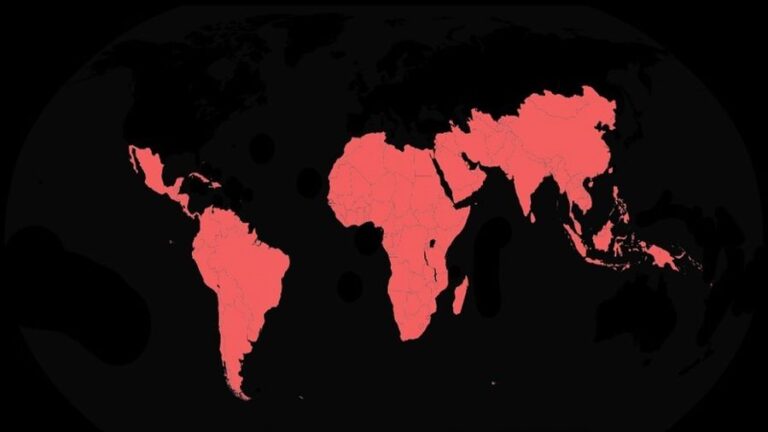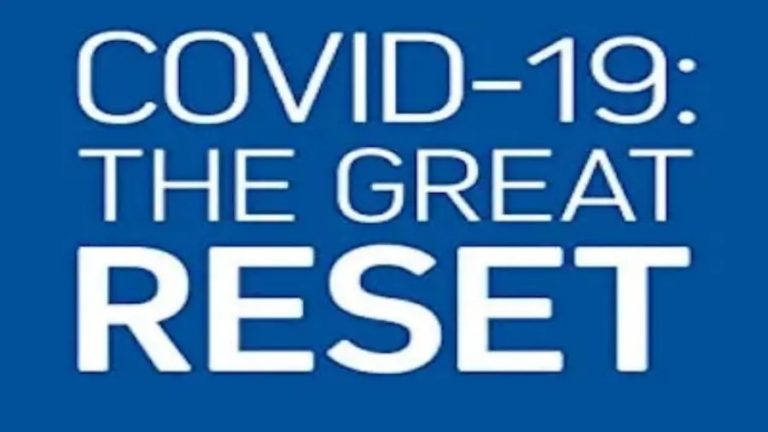Israel’s Money Machine – Jewish Oligarchs Fund Crimes Against Humanity
The stars came out in Hollywood on November 2nd, or at least some of them did. The gala event celebrated the Israel Defense Forces (IDF) and raised funds to support its mission in Israel itself and on the occupied West Bank. The organization being fêted was the Friends of the Israel Defense Forces (FIDF), which has fourteen regional offices in the United States and operates under the slogan “Their job is to look after Israel. Our job is to look after them.” In attendance were Arnold Schwarzenegger and actor Gerald Butler. Entertainment was provided by the singer Seal.
Hollywood Jewish royalty was thick on the ground, the grub was strictly kosher and billionaires competed to see who could give the most to such a worthy cause. The 1,200 attendees at the Beverly Hilton Hotel donated a record $53.8 million, with Oracle founder Larry Ellison leading the pack with a contribution of $16.6 million. Israeli media mogul Haim Saban, Hillary Clinton’s most generous supporter, served as host of the event and donated $5 million. Two weeks ago, a similar gathering of 1,200 in New York City dubbed “A Night of Heroes,” attended by GOP major donor casino magnate Sheldon Adelson, raised $35 million, $7 million coming from Adelson personally. FIDF reportedly was sitting on $190 million in contributions for the year before the Hollywood and New York events.
Donations to FIDF are tax deductible as the organization is registered with the U.S. Treasury as a 501(c)3 educational and charitable non-profit foundation. One might well ask how it is possible that the American taxpayer should subsidize a foreign military organization that is regularly accused of war crimes in its ongoing brutal occupation of the Palestinian West Bank and East Jerusalem? One might also wonder how an organization that continues a military occupation in opposition to multiple United Nations resolutions that have been endorsed by Washington gets any kind of tax break at all? And finally, one might reasonably ask why an organization that already gets in excess of $3.8 billion annually directly from the U.S. Treasury needs more money to allegedly provide creature comforts for its soldiers?
The answer to all of the above would be that Jewish power in the United States makes it happen. But more particularly, it is Jewish money that does the trick since cash on the table provides access both to the media and to the people that matter in Washington. A tight circle of billionaire oligarchs, including Saban, Ellison and Adelson as well as Paul Singer and Bernard Marcus directly support organizations like FIDF as well as major pro-Israel groups like the Foundation for Defense of Democracies, the America Israel Public Affairs Committee, the Washington Institute for Near East Policy, the Anti-Defamation League and the Jewish Institute for National Security of America. The billionaires are not shy about where their loyalty lies, boasting as does Saban, that he is a one issue guy and that issue is Israel. Adelson has stated that he wishes that he had served in the Israeli army instead of the U.S. military and wants his son to grow up to “be a sniper for the IDF.” Both have publicly advocated bombing Iran. In Adelson’s case, the bomb would be nuclear.
Sometimes both the Israel agenda and the financial support is deliberately hidden, as in the case of the recently launched “Christian engagement in the Middle East” anti-Iran Philos Project, which was funded by Singer. The billionaires also directly donate to the campaigns of politicians and support projects that engage in the message management that is used to justify pro-Israel policies in Congress and the media.
Much of the current agitation to “do something” about Iran comes, for example, from these groups and media assets. In truth, American aid to Israel has become virtually untouchable and is something like a goose that keeps on laying golden eggs. The operation of “The Lobby,” generally regarded as the most powerful voice on foreign policy in Washington, led Professors Stephen Walt and John Mearsheimer to ask, “Why has the U.S. been willing to set aside its own security … in order to advance the interests of another state? [No] explanation can account for the remarkable level of material and diplomatic support that the U.S. provides.” They observed that “Other special interest groups have managed to skew foreign policy, but no lobby has managed to divert it as far from what the national interest would suggest, while simultaneously convincing Americans that U.S. interests and those of the other country—in this case, Israel—are essentially identical.”
The money committed by the Jewish oligarchs on behalf of Israel has turned out to be a good investment, returning billions for millions spent. Since the foundation of the state of Israel in 1948, it has been “the largest cumulative recipient of U.S. foreign assistance since World War II,” according to the Congressional Research Service. The United States has provided Israel with $233.7 billion in adjusted for inflation aid between 1948 through the end of 2012, reports Haaretz.
The $38 billion over ten years in military assistance that the Obama recently promised to Israel is far less than what will actually be received from the United States Treasury and from other American sources, including handouts from Congress. To cite only one recent example, in September Congressman Alcee Hastings proposed a legislative amendment that would give $12 million to help settle Israel’s Ethiopian community. Senator Lindsey Graham (R-S.C.), speaking in the most recent legislative discussion over Israeli aid, stated that the $38 billion should be regarded as a minimum amount, and that Congress should approve additional funds for Israeli defense as needed.
At its most recent meeting in March 2017, AIPAC announced the latest windfall from America, applauding “the U.S. House of Representatives for significantly bolstering its support of U.S.-Israel missile defense cooperation in the FY 2017 defense appropriations bill. The House appropriated $600.7 million for U.S.-Israel missile defense programs.” And there is a long history of such special funding for Israeli-connected projects. The Iron Dome missile-defense system was largely funded by the United States, to the tune of more than $1 billion. In the 1980s, the Israeli Lavi jet-fighter development program was funded by Washington, costing $2 billion to the U.S. taxpayer before it was terminated over technical and other problems, part of $5.45 billion in Pentagon funding of various Israeli weapons projects through 2002.
How Israel gets money from the United States Treasury is actually quite complex and not very transparent to the American public, going well beyond the check for $3.8 billion handed over at the beginning of the fiscal year on October 1st. Even that check, uniquely given to aid recipient Israel as one lump sum on the first day of the year, is manipulated to produce extra revenue. It is normally immediately redeposited with the U.S. Treasury, which then, because it operates on a deficit, borrows the money to pay interest on it as the Israelis draw it down. That interest payment costs the American taxpayer an estimated $100 million more per year. Israel has also been adept at using “loan guarantees,” an issue that may have contributed to the downfall of President George H.W. Bush. The reality is that the loans, totaling $42 billion, are never repaid by Israel, meaning that the United States Treasury picks up the tab on principle and interest, a form of additional assistance. The Bush-era loan amounted to $10 billion.
Department of Defense co-production projects, preferential contracting, “scrapping” or “surplusing” of usable equipment that is then turned over to the IDF, as well as the forward deployment of military hardware to an Israeli base, are considerable benefits to Tel Aviv’s bottom line. Much of this assistance is hidden from view.
In September 2012, Israel’s former commander-in-chief, Gen. Gabi Ashkenazi, admitted at a conference that between 2009 and 2012 American taxpayers had paid for more of his country’s defense budget than had Israeli taxpayers. Those numbers have been disputed, but the fact remains that a considerable portion of the Israeli military spending comes from the United States. It currently is more than 20 percent of the total $16 billion budget, not counting special appropriations.
Through tax exemptions, the U.S. government also subsidizes the coordinated effort to provide additional assistance to Israel. Like FIDF, most organizations and foundations that might reasonably be considered active parts of the Israel Lobby are generally registered with the Department of the Treasury as tax-exempt foundations. Grant Smith, speaking at a conference on the U.S. and Israel on March 24th, explained how the broader Israel Lobby uses this legal framework:
“Key U.S. organizations include the American Israel Public Affairs Committee (AIPAC), the American Jewish Committee (AJC), the Zionist Organization of America (ZOA) and the Anti-Defamation League (ADL). Hundreds more, including a small number of evangelical Christian organizations, play a role within a vast ecosystem that demands unconditional U.S. support for Israel. In the year 2012 the nonprofit wing of the Israel lobby raised $3.7 billion in revenue. They are on track to reach $6.3 billion by 2020. Collectively they employed 14,000 and claimed 350,000 volunteers.”
The $3.7 billion raised in 2012 does not include the billions in private donations that go directly to Israel, plus billions in contributions that are regarded as “religious exemptions” for groups that don’t file at all. There are also contributions sent straight to various Israeli-based foundations that are themselves often registered as charities. The Forward magazine investigated 3,600 Jewish tax-exempt charitable foundations in 2014 and determined that they had net assets of $26 billion, $12–14 billion in annual revenue, and “focuse[d] the largest share of [their] donor dollars on Israel.” The Forward added that it is “an apparatus that benefits massively from the U.S. federal government and many state and local governments, in the form of hundreds of millions of dollars in government grants, billions in tax-deductible donations and billions more in program fees paid for with government funds.”
Money being fungible, some American Jews have been surprised to learn that the donations that they had presumed were going to charitable causes in Israel have instead wound up in expanding the illegal settlements on the West Bank, an objective that they sometimes do not support. Donald Trump’s son-in-law and advisor Jared Kushner has a family foundation that has made donations to Israel, including funding of West Bank settlements, which is illegal under U.S. law, as has Ambassador David Friedman.
Israel also benefits in other ways, frequently due to legislative action by Congress. It enjoys free and even preferential trade status with the United States and runs a $9 billion trade surplus per annum. Its companies and parastatal organizations can, without any restrictions, bid on U.S. defense and homeland-security projects—a privilege normally only granted to NATO partners. It’s major defense contractor Elbit recently was awarded a multi-million dollar contract to apply technologies to defend American tanks. It was a prime example of U.S. aid subsidizing an Israeli industry that then competes directly with American companies, producing a loss of jobs in the United States.
And the transfer of public money to Israel is common even at state and local levels. Some state treasuries and pension funds have purchased Israel Bonds, which are a bad investment, putting retirees at risk, as they have to be held to maturity and therefore have no secondary market and lack liquidity. Most recently, the Ohio Treasurer’s office bought a record $61 million in Israel Bonds on April 3rd. Ohio Treasurer Josh Mandel admitted the purchase was in response to the boycott, divestment and sanctions movement, meaning that Ohio taxpayers are unsuspecting participants in a risky investment scheme largely intended to punish critics of Israel. Mandel is, not surprisingly, hardly a disinterested party on the subject of Israel. He was a member of AIPAC while attending Ohio State University and spoke at its 2008 Policy Conference in Washington. After denouncing Iran, he said that “Israel is our best friend and ally in the Middle East and it’s important that we maintain a strong and lasting relationship with them.” Eighty other state and municipal public employee pension and treasury funds have also reportedly bought the bonds.
The U.S.-Israeli bilateral relationship has been an expensive proposition for Americans, yet another instance where the perceived needs of a U.S. “ally” take precedence over genuine national interests. Tens of billions of dollars need not necessarily be spent to placate a wealthy foreign country and its powerful domestic lobby or to satisfy the pretensions of the billionaires who grease the machinery to keep Israel’s money machine operating.
By Philip M. Giraldi, Ph.D.
Source: The Unz Review








As an American, this deeply disturbs me. We all are under the Jewish yoke, sorry to say.